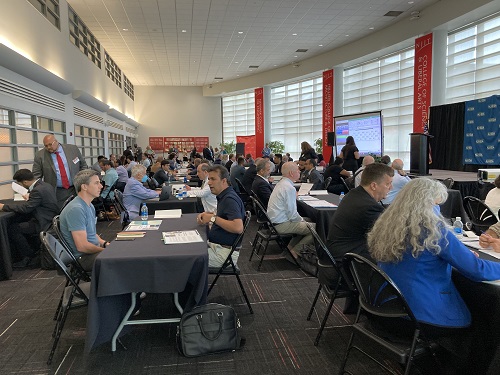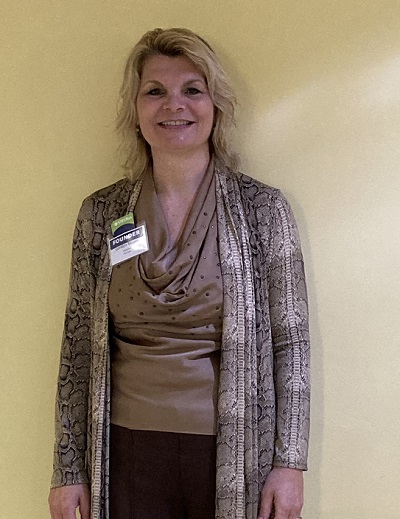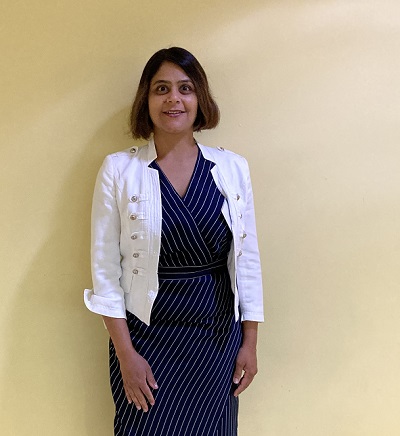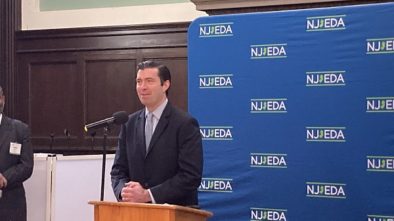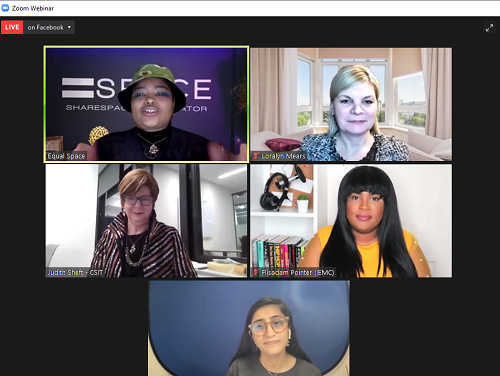New Jersey Women Tech Startup Founders Meet with Investors at Founders & Funders (Part 2)
The June 1 Founders & Funders event, sponsored by the New Jersey Economic Development Authority (NJEDA), brought together New Jersey startup founders with angels and venture investors in 10-minute meetings. Founders got to know investors and, in many cases, took home good advice and sometimes a promise of a follow-up meeting.
NJTechWeekly.com has been following these Founders & Funders events since their inception, and we believe this event is one of the best ways for founders to make multiple connections for fundraising. In part 2, we feature interviews with three of the women tech founders who attended Founders & Funders.
Loralyn Mears, founder and CEO of STEERus
Loralyn Mears is a highly visible New Jersey startup founder who has written about and encouraged women and other members of the New Jersey startup ecosystem. Her startup is STEERus (River Vale Township).
We asked Mears for her elevator pitch, and this is what she told us: “STEERus is all about communication. We help companies and individuals improve their communication skills for better success because people have trouble communicating with each other. We’ve got intergenerational communication challenges; we’ve got cross-cultural communication challenges. The more that we work with offshore talent, and the more that we work remotely, the less we’re communicating and the less effectively we’re communicating. So, we’ve created a combination of an academy for self-help — we call it a ‘success academy’ — where people can find personal and professional development of all flavors. We’ve created an assessment where we can tell you what you need, which skills to improve. And then we’ve got the tech platform where we can dynamically give you a personalized playlist of learning based on our modularized content.”
Mears had some feedback to offer the NJEDA about the event. She identified two gaps in investor and investment availability: “One, there are just so few pre-seed, pre-revenue funding opportunities, and these investors are harder and harder to find. Even the angels are becoming more like venture capitalists. They want to see monthly revenue. So, that pre-seed investor is becoming like a dinosaur breed, you can’t find them anymore, they’ve gone extinct. And then the second thing is that New Jersey has a really vibrant tech ecosystem and investor ecosystem, but it’s largely in fintech, med tech and a lot of deep tech. There is very little room in the [human resources] tech space,” where STEERus sits.
She said that the investors she had met with were very gracious and recognized the problem. They recommended other funders she could meet with who sometimes wrote checks for pre-seed startups.
Mears would like to see the NJEDA offer no-strings-attached grants to founders in the range of $5,000 or $10,000, just so they could move the needle on their startups. “That would be enormously helpful,” she said. Also, she believes that the Founders & Funders event should be expanded across all niches. “It’s wonderful to be included. And I’m really glad that I was. But if you don’t have anybody here who invests in HR tech, or edtech, I’m instantly not a match, right? And I don’t want to waste the investors’ time.”
Kirthika Parmeswaran, founder and CEO of Vital Start Health
According to Kirthika Parmeswaran, Vital Start Health (Philadelphia and Princeton) has developed the first maternal mental health platform using virtual reality (VR) and artificial intelligence for affordable, personalized and clinically guided care across the maternity spectrum, from pre-pregnancy care, to high-risk pregnancies and the neonatal intensive care unit experience, and following through the postpartum period. Parmeswaran founded the company with John Chuo, neonatal quality officer at the Children’s Hospital of Philadelphia and a professor of clinical pediatrics at the University of Pennsylvania School of Medicine.
We asked her for the elevator pitch, and she gave it. “We’ve all heard of the four vital signs: pulse, respiratory rate, body temperature and body pressure. Today, I’ll be unveiling the fifth, the vital sign for well-being, a digital signature by Vital Start. Our initial focus is on maternal mental health, an area that’s really close to my heart. I personally have been through postpartum depression and come face to face with the discrepancies in the healthcare system. I’m a Wharton alum, with deep expertise across technology and business. And I’m passionate to address this issue through innovation. We’re going after an $18 billion opportunity.”
We asked why the startup was incorporating VR into its solution. “The American Psychological Association is recommending VR for mental health conditions, including PTSD [post-traumatic stress disorder], OCD [obsessive-compulsive disorder], stress, anxiety, depression. There’s a body of evidence showing efficacy for VR, and that is coming from the visceral, immersive nature of VR. So that’s helping a patient relive that experience. And hence, with a practitioner in the loop, they can be provided with that helpful thinking that they need.”
When we asked Parmeswaran about her meetings, she had met four investors. One of them she knew already and was happy to fill in on the company’s progress. “Most of them wanted to talk more, so I was able to get contact information.” The company was too early stage for some of the investors, but they said they’d connect her with other investors who were considering very early-stage startups in this area.
“And then I also got some feedback on my ‘one-pager,’ that maybe I could include a profit-and-loss statement and more on our market strategy. So that was a good learning. I’d been using it more like a flyer with an overview of the company.”
Kathleen Colatrella, founder and president of LINEA System
Explaining her startup, Kathleen Colatrella said that LINEA System (Parsippany) is “a clinical science technology company focusing on accelerating clinical trials.
“We do that through our software, AcceleTrial. We have hundreds of thousands of clinical investigators on our sites. They are doctors that support clinical trials. And we are able to reduce the startup costs of the clinical trials by 50 percent through our platform,” she said.
“Why is this important? Because the clinical trial process is challenging, it’s a mess, and it requires a lot of a rigorous process to be able to get a completed trial. [The platform] is meaningful for pharma folks or for stakeholders because there’s a lot of costs and time that happens when trials are delayed. When the clinical trials are delayed, it costs not only pharma conducting the trial, but also adds costs to consumers for new medicines that come on the market. So, if we can impact and reduce that timing for the trial of the products getting on the market, that would be significant for all of us. And we believe that we can make a significant impact by having all pharma companies run their clinical trials through our system.”
She explained how it works: “If you’re a pharmaceutical company, and you’re going to be launching a trial on Alzheimer’s, and you tell us ‘I need to find 15 neurologists that have the expertise, clinical experience and the patients who support our trial,’ we will be able to go into our database immediately and give you all of the neurologists who have already been vetted, have the clinical experience that you’re looking for and have the access to the patients, as well.”
Asked about her meetings, Colatrella said that she had met with five investors, and that her company was too early stage for them to invest in it; but that was OK, since she wasn’t ready for investments yet. She used the meetings to learn about where each investor operates in the market and how much traction they need to see before they will write a check. Some of the investors wanted to know more about the company, to keep an eye on it for future investment.
“I think it’s important for them to learn who we are and what space we play in, and for us to be able to see what a successful engagement looks like. We also are learning what stage investors invest in and what size of a check they write. We’ve been learning about all of that as we speak to the different investors.” So far, Colatrella has been bootstrapping her company.

